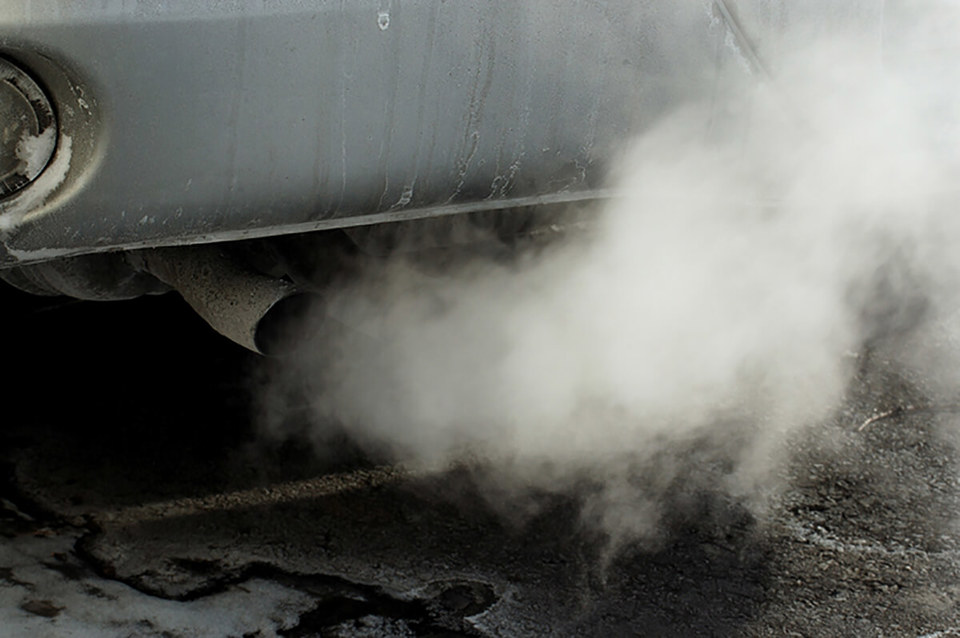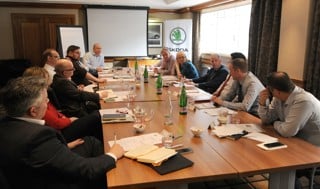Glasgow City Council told fleet decision-makers it recognises the need to work with business over the next 12-18 months in order to make Scotland’s first low emission zone (LEZ) “proportionate”.
Fleet organisations representing the users of millions of cars, vans and trucks come together yesterday (Tuesday, June 26) to discuss the proposed LEZ at a roundtable event.
The meeting was jointly hosted by Fleet News, the British Vehicle Rental and Leasing Association (BVRLA), Energy Saving Trust and Glasgow City Council, with a number of national and regional fleet operators present.
The roundtable is one of a series held in cities across the UK and the first in Scotland.
Glasgow’s LEZ will come into effect in parts of the city from the end of this year and will initially target buses operating in and out of the designated area, with a phased implementation over four years. This will then be extended out to all vehicle types from 2022.
Councillor Anna Richardson, city convenor for sustainability and carbon reduction at Glasgow City Council, said: “Focusing initially on buses, our LEZ will apply to all vehicles by the end of 2022. This pragmatic and phased approach looks at the cities overall needs not just at improving air quality to ensure that approaches do not have a detrimental impact on peoples’ lives, businesses and the vitality of the city.
“It’s a policy that’s rooted in the principles of consultation and open dialogue with stakeholders. We recognise the need to work together to make it a success.
“We will therefore be engaging with interested stakeholders over the next 12-18 months in order that the process is proportionate.”
The Energy Saving Trust is offering advice and support to the organisations involved in developing the new LEZ in Glasgow.
Matthew Eastwood, head of transport (Scotland) at the Energy Saving Trust, said: “Although most of the leased and rental vehicles are the most modern and clean, it’s important to be challenging and supportive of fleet operators through their vehicle choice process.
“Energy Saving Trust works with fleet operators to find the cleanest vehicles available and in so doing supports the campaign to improve the air quality of cities such as Glasgow.”
Earlier this year, the BVRLA published a new factsheet outlining its proposals for fleet-friendly air quality policy.
As well as highlighting the clean air credentials of the vehicle rental, leasing and car club sectors, the document also urges policymakers to focus on three priorities when considering clean air zones and other air quality measures. The three measures are:
- Providing a managed transition for businesses and individuals – attention should be given to those that cannot afford to upgrade their vehicles.
- Ensuring that Clean Air Zones are a catalyst for behaviour change – local residents and businesses should be encouraged and incentivised to consider more sustainable vehicles or modes of transport.
- More incentives for Low Emission Vehicles – policymakers can do more to stimulate the first and second-hand market for low emission vehicles, particularly electric ones.
Gerry Keaney, Chief Executive of the BVRLA, said: “Glasgow’s Low Emission Zone will be a major development in the history and development of the local area.
“It will affect hundreds of thousands of people not just in Glasgow but across the wider region, together with tens of thousands of businesses.
“It’s vital that the development of any zone is based on wide consultation to maximise its effectiveness and ensure that it does not have an adverse impact on the wider economy and people’s quality of life.”
He continued: “We welcome that Glasgow have understood the need provide a phased implementation for the low emission zone and are committed to working with the council to ensure that they build on this practical and sensible approach.”




















Login to comment
Comments
No comments have been made yet.